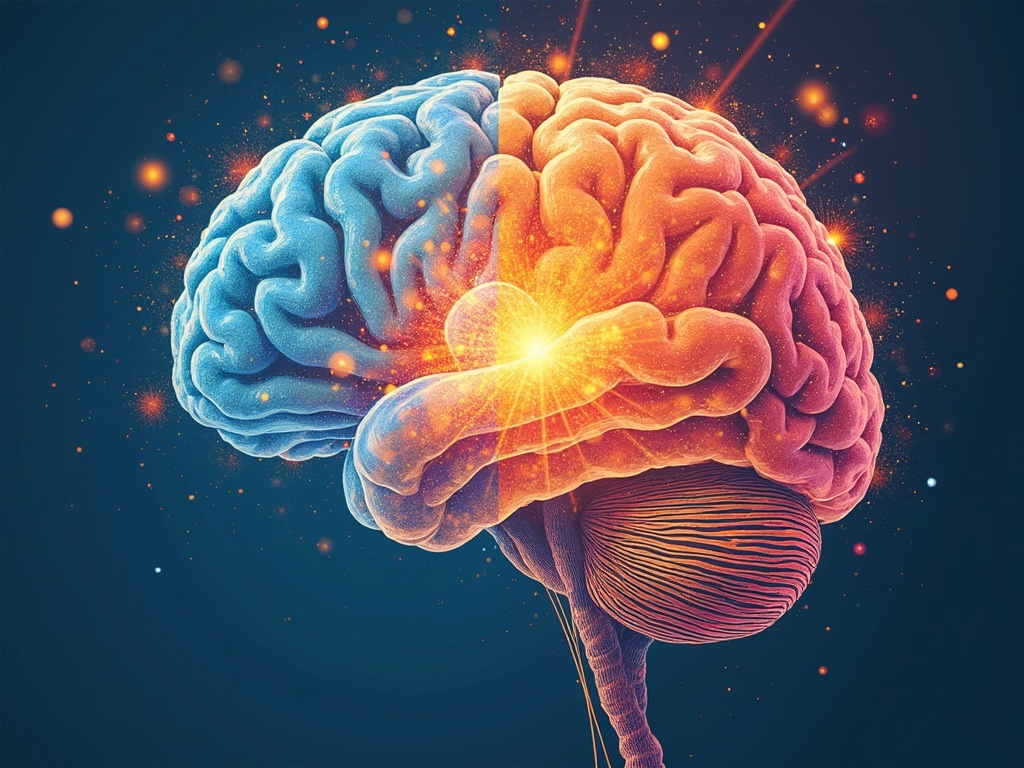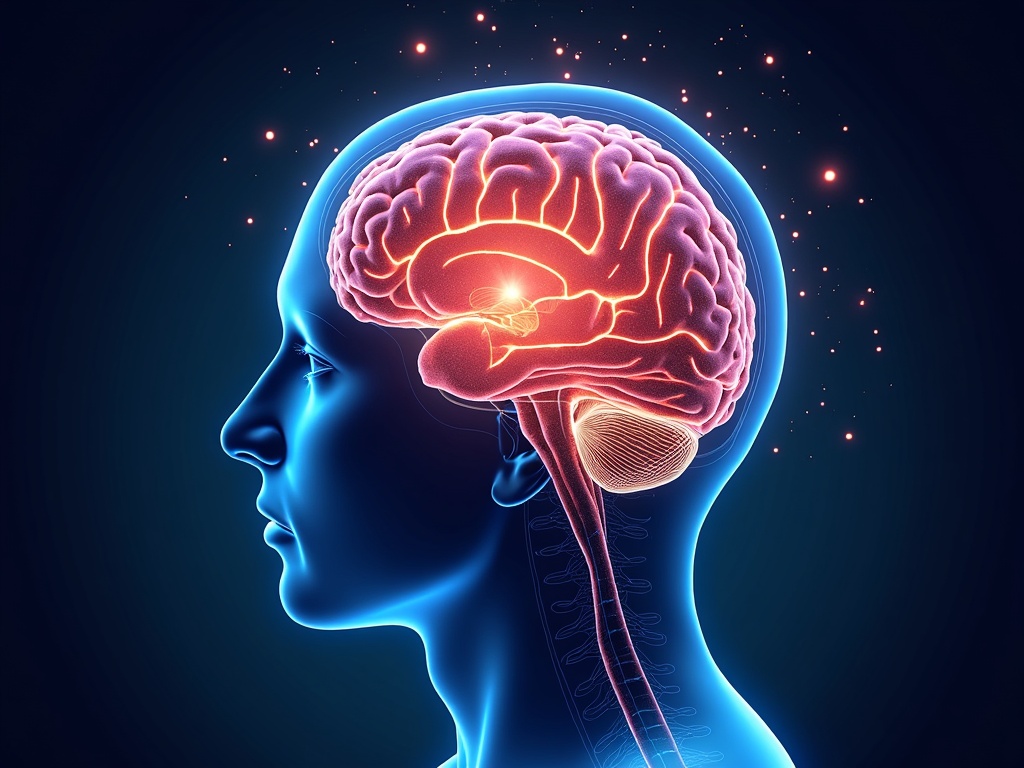Boosting Brain Power After 50: Strategies for a Sharper Mind
Remembering names, finding your keys, and staying focused during long conversations – these mental tasks can feel a bit more challenging after 50. It’s a common experience, and while some cognitive changes are a natural part of aging, the good news is that you're far from powerless. Think of your brain as a muscle: with the right exercises and nourishment, you can keep it strong and agile for years to come. This article explores effective strategies for boosting brain power after 50, helping you maintain cognitive sharpness and enjoy a vibrant, engaged life.
Understanding the Aging Brain
The brain, a complex organ that controls everything we do, undergoes changes as we age. These changes can affect various cognitive functions, including memory, processing speed, and attention span. One of the primary changes is a decrease in brain volume, particularly in areas like the prefrontal cortex and hippocampus, which are crucial for higher-level cognitive functions. Neurotransmitter levels, which play a key role in cell communication, may also decline. Additionally, blood flow to the brain can decrease, potentially impacting its energy supply and overall function. However, it’s crucial to remember that these changes don't automatically lead to cognitive decline. Lifestyle factors play a significant role, and many individuals maintain excellent cognitive function well into their later years.
Common Cognitive Changes After 50
- Slower Processing Speed: Tasks may take a bit longer to complete as the brain processes information at a slightly slower pace.
- Memory Lapses: Occasional difficulty recalling names, dates, or recently learned information is common.
- Difficulty with Multitasking: Older adults may find it harder to switch between tasks or manage multiple streams of information simultaneously.
- Reduced Attention Span: Maintaining focus during conversations or complex activities can become more challenging.
Lifestyle Strategies for Brain Health
The most potent tools for boosting brain power after 50 are often found in your daily habits. Adopting a brain-healthy lifestyle can make a significant difference in cognitive function and overall well-being.
1. The Power of Physical Exercise
Physical activity isn't just good for your body; it's also a boon for your brain. Exercise increases blood flow to the brain, delivering essential oxygen and nutrients that support healthy neuronal function. It also stimulates the release of growth factors that promote neuroplasticity, the brain's ability to form new connections and adapt to change. Aim for at least 150 minutes of moderate-intensity aerobic exercise per week, such as brisk walking, swimming, or cycling. Strength training is also beneficial, as it can improve overall fitness and cognitive function. Even short bursts of activity, like taking the stairs instead of the elevator or going for a walk during lunch, can add up and contribute to brain health.
2. Nourishing Your Brain with a Healthy Diet
What you eat directly impacts your brain. A diet rich in fruits, vegetables, whole grains, and lean protein provides the essential nutrients your brain needs to function optimally. Foods rich in antioxidants, such as berries, spinach, and dark chocolate, help protect brain cells from damage caused by free radicals. Omega-3 fatty acids, found in fatty fish like salmon, tuna, and mackerel, are crucial for brain health and may improve cognitive function. Conversely, limit your intake of processed foods, sugary drinks, and saturated fats, as these can negatively impact brain health. Consider adopting the Mediterranean diet, which emphasizes whole foods, healthy fats, and lean protein and has been linked to improved cognitive function and a reduced risk of cognitive decline.
3. The Importance of Sleep
Sleep is essential for brain health. During sleep, the brain consolidates memories, clears out toxins, and repairs itself. Chronic sleep deprivation can impair cognitive function, affecting memory, attention, and decision-making. Aim for 7-9 hours of quality sleep per night. Establish a regular sleep schedule, create a relaxing bedtime routine, and make sure your bedroom is dark, quiet, and cool. If you have trouble sleeping, talk to your doctor about potential solutions.
4. Stress Management Techniques
Chronic stress can have a detrimental effect on the brain. It can lead to inflammation, disrupt neurotransmitter balance, and impair cognitive function. Finding effective stress management techniques is crucial for protecting your brain health. Mindfulness meditation, yoga, deep breathing exercises, and spending time in nature are all effective ways to reduce stress and promote relaxation. Identify your stressors and develop strategies for managing them. This could involve setting boundaries, delegating tasks, or seeking professional help.
Mental Exercises and Cognitive Training
Just as physical exercise strengthens your body, mental exercises can strengthen your brain. Engaging in mentally stimulating activities helps maintain cognitive function and may even improve it.
1. Brain Training Games and Puzzles
Brain training games and puzzles, such as Sudoku, crossword puzzles, and Lumosity, can help improve cognitive skills like memory, attention, and problem-solving. These games challenge your brain to think in new ways and form new connections. While the evidence on the long-term benefits of brain training games is still evolving, many studies suggest that they can be effective in improving specific cognitive skills. Choose games that are challenging but not overly frustrating, and make sure to engage in them regularly.
2. Lifelong Learning and New Experiences
Learning new things is one of the best ways to keep your brain active and engaged. Take a class, learn a new language, play a musical instrument, or pursue a new hobby. New experiences challenge your brain to adapt and form new connections, promoting neuroplasticity. Don't be afraid to step outside your comfort zone and try something completely different. The more you challenge yourself, the stronger your brain will become.
3. Reading and Engaging in Intellectual Discussions
Reading books, articles, and engaging in intellectual discussions are excellent ways to stimulate your brain and expand your knowledge. Reading exposes you to new ideas, perspectives, and vocabulary, while intellectual discussions challenge you to think critically and articulate your thoughts. Join a book club, attend lectures, or simply engage in conversations with friends and family about interesting topics. The more you engage with ideas, the sharper your mind will remain.
Supplements and Medications
While lifestyle strategies are the foundation of brain health, some supplements and medications may also play a role in boosting brain power after 50. However, it's crucial to talk to your doctor before taking any supplements or medications, as they can interact with other medications or have side effects.
1. Vitamins and Minerals
Certain vitamins and minerals are essential for brain health. Vitamin B12, for example, plays a crucial role in nerve function and cognitive performance. Vitamin D is also important for brain health, and deficiencies have been linked to cognitive decline. Other important vitamins and minerals include vitamin E, vitamin C, magnesium, and zinc. A balanced diet should provide most of these nutrients, but some individuals may benefit from supplementation. Talk to your doctor to determine if you have any nutrient deficiencies and whether supplementation is appropriate for you.
2. Omega-3 Fatty Acids
As mentioned earlier, omega-3 fatty acids are crucial for brain health. If you don't eat fatty fish regularly, you may want to consider taking an omega-3 supplement. Look for supplements that contain both EPA and DHA, the two main types of omega-3 fatty acids found in fish oil. Studies have shown that omega-3 supplementation can improve cognitive function, particularly in older adults with mild cognitive impairment.
3. Medications for Cognitive Impairment
If you're experiencing significant cognitive decline, your doctor may recommend medications to treat conditions like Alzheimer's disease or other forms of dementia. These medications can help improve cognitive function and slow the progression of the disease. However, they don't cure the underlying condition and may have side effects. It's important to work closely with your doctor to determine the best treatment plan for you.
Maintaining Social Connections
Social interaction is crucial for brain health. Studies have shown that people who are socially active tend to have better cognitive function than those who are socially isolated. Social interaction stimulates the brain, reduces stress, and provides a sense of purpose and belonging. Make an effort to stay connected with friends and family, join social groups, or volunteer in your community. The more you engage with others, the healthier your brain will be.
Conclusion: Empowering Your Brain for a Lifetime
Boosting brain power after 50 is an ongoing journey, not a destination. By adopting a brain-healthy lifestyle, engaging in mental exercises, and maintaining social connections, you can empower your brain to thrive for years to come. Remember, it's never too late to start taking care of your brain. Small, consistent changes can make a big difference in your cognitive function and overall well-being. Embrace these strategies and unlock your brain's full potential for a sharper, more vibrant future.

